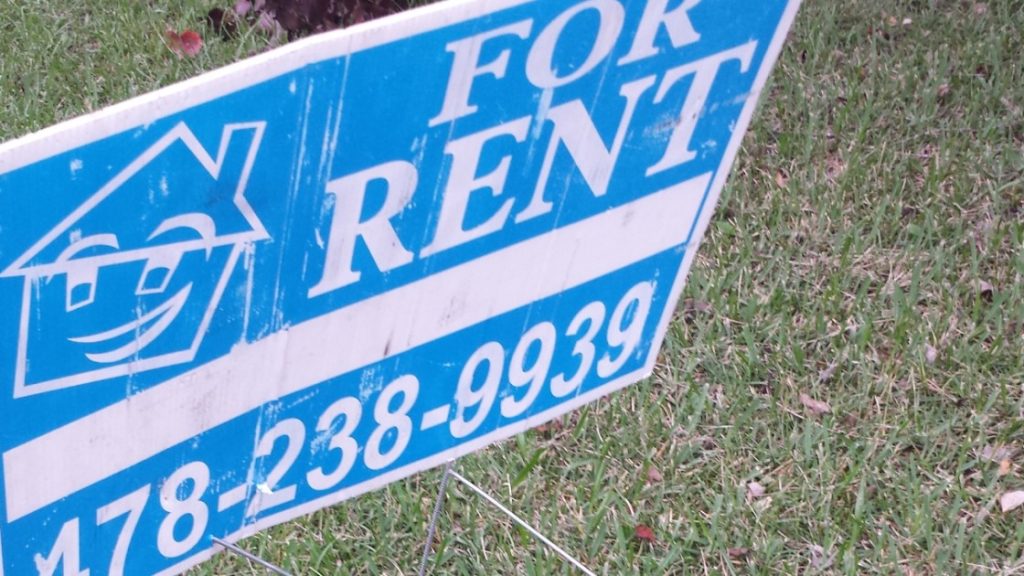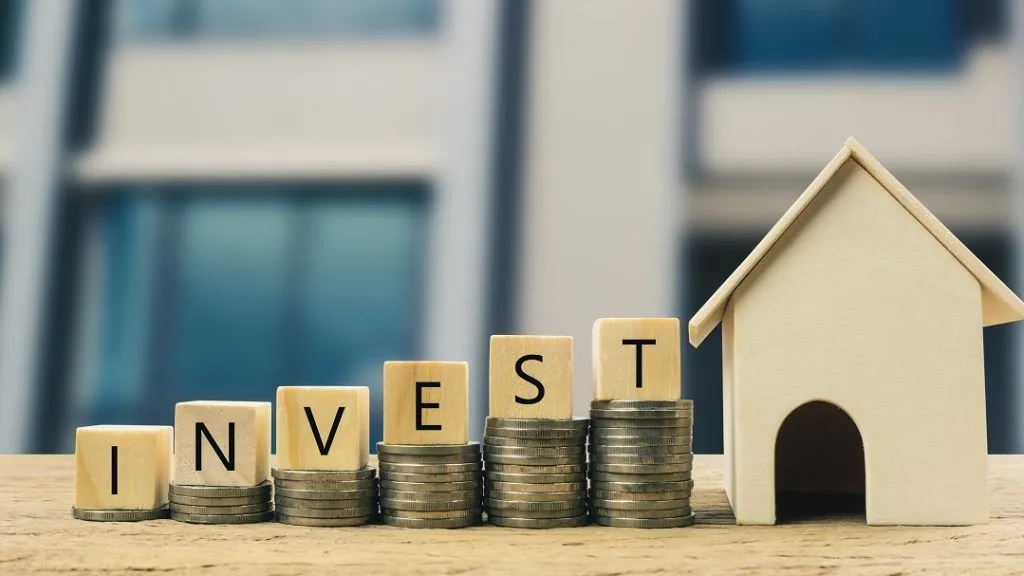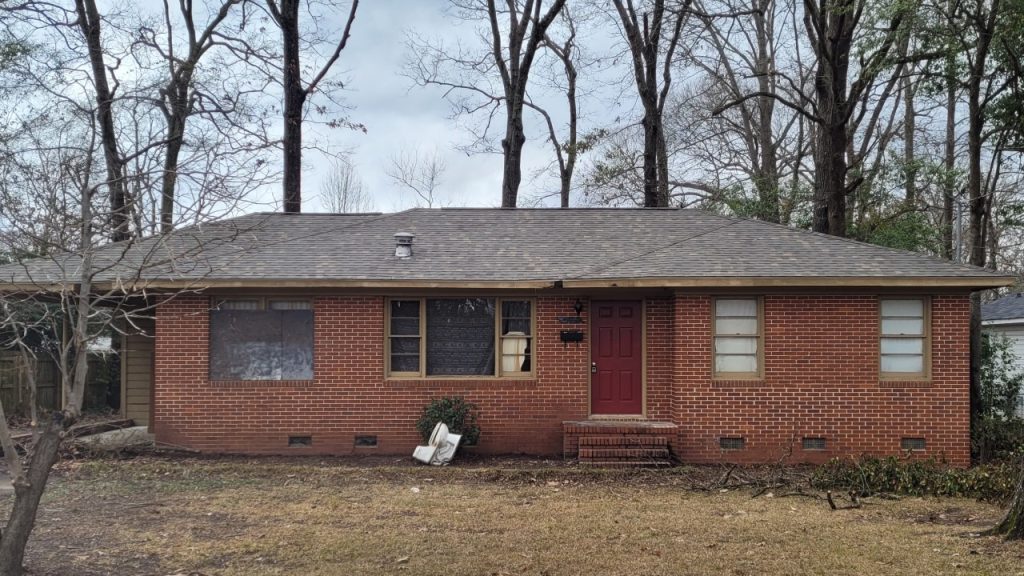Real estate investors frequently use two popular strategies: house flipping and owning rental properties. Which type of investment is the most profitable, the rent or the flip? I can answer that. I have been investing in real estate for more than 15 years; I have over 70 rental properties and have flipped countless houses. I now have an income stream from a rental portfolio and often have lump sum profits from flipping a house.
Flipping a house is more profitable than owning a rental house in the short term. However, rental properties provide residual income and wealth accumulation. The best strategy combines both; flip houses for a quick profit and hold long-term rentals to build wealth.
This article will explain how house flipping and rental properties work. I will use my years of experience with each investment strategy to show you if flipping properties is more profitable than owning long-term rental properties. In addition, I will show you how this works in the real world, using a property I bought last month.
How Rental Houses Work

The rental house process involves purchasing properties and renting them to tenants. Tenant issues are one of the most significant downsides rental property owners must face. Other than dealing with the tenant, there is not much time-consuming work in managing a rental property over the long run. This attribute makes it easy to accumulate a sizeable rental house portfolio and manage them effectively.
Rental investors won’t have as many day-to-day tasks as house flippers. However, a landlord must perform repairs and maintenance and prepare the house as tenants leave. A rental property owner may experience long periods with little to do, but when tenant issues arise, there is pressure to act fast. With a rental property owner, your responsibilities are less time intensive but continue much longer.
Tax implications
Investing in rental houses often comes with generous tax deductions, such as depreciation and suspended passive losses. In addition, the increase in equity can be tapped with a credit line but is not taxed until the houses are sold. Since rental houses are typically held for more than a year, any gains will be subject to the lower long-term capital gain rate.
Final word: Rental Houses
When renting out a house, you will start with a large cash outlay or a loan to purchase the house and get it ready to rent. During the time you own the house, it will produce ongoing income as tenants pay rent, and your net worth should rise as the property increases in value. However, managing the ongoing maintenance and vacancy requires skill and dedication. If you have no experience with rental houses, check out my ultimate guide to buying rental properties.
How House Flipping Works

House flipping, as opposed to rental house investing, is a short-term investment strategy that consists of buying a property with the intention of improving it and then reselling it for a profit. An investor that has found a good flip will have a great profit potential but could face financial ruin due to unexpected costs.
When flipping a house, the average period between purchasing and selling will be short, but this short time will be busy. During this time, the property owner must manage the work to ensure everything is completed on schedule, on budget, and with acceptable quality. This is a lot of work but has a definite end: when the property is sold.
When flipping a house, as with rental houses, you will fund the purchase and renovation costs with a large cash outlay or a loan. In most cases, you should be able to complete renovations and sell the property in about six months. You make your profit as a lump sum payment when the property sells.
Tax implications
If everything goes according to plan, the profit from house flipping should be earned within a year of the purchase. As a result, this income will be treated as ordinary income or short-term capital gains, which have a higher tax rate. In addition, there is little or no depreciation expense derived from a house-flipping project.
Final word: Flipping
Flipping a house can be one of the most profitable investment strategies, but it is not without risk. This can be lucrative in a high-demand market with rising property values. However, a house flipper could face a devastating loss under certain market conditions or with a single unexpected renovation cost. Real estate house flippers must understand many nuances to have a successful flip. If you are new to this, I have an article to teach you how to start flipping houses.
Income: Passive vs. Active

Flipping a house and owning rental properties are different real estate investments. Determining which is more profitable, a rent or a flip requires us to consider the difference between the two approaches. Income from a flip house is active, while revenue from a rental home is passive. Both types of income can be valuable and contribute to an individual’s overall financial success, but they require different strategies and approaches to manage effectively.
Passive income
Passive income is revenue earned with little or no effort from the earner. This type of income is typically generated through investments or assets that generate regular income streams without requiring ongoing effort. Successfully investing in rental houses produces a passive income. Passive income has become a buzzword, but it’s not always ideaa.
Pros
Financial Stability: Passive income can provide a stable source of income, which can help you to plan your finances better and reduce stress.
Diversification: Passive income allows you to diversify your income streams, which can help to reduce your overall risk.
Scalability: Passive income has the potential to be scalable, which means that you can increase your revenue without necessarily increasing your efforts.
Freedom: Passive income can give you the freedom to pursue other interests, travel, or spend time with family, as you are not required to work actively for this income.
Cons
Lack of Control: Passive income streams may not always be entirely within your control, which means that you may be unable to make decisions that directly impact your income.
Maintenance: Passive income streams may require some level of care, such as managing rental properties, which can take up your time and require effort.
Initial Effort: While passive income may require little to no effort once set up, the initial effort and investment required can be significant.
Market Volatility: Passive income sources such as investments can be subject to market volatility, which means your income can fluctuate.
Active income
Active income is earned through active participation in work or business activities. This type of income is typically achieved through wages, salaries, or self-employment income and requires ongoing effort and time to generate. A profitable house-flipping venture will produce an active income. We hear a lot about passive income, but active income can sometimes be better.
Pros
Predictability: Active income is often more predictable than passive income, as you can estimate your income based on your job or business earnings.
Skill Development: Active income can provide opportunities for skill development and career growth, which can help to increase your earning potential over time.
Immediate Gratification: Active income allows you to enjoy the benefits of your hard work immediately, as you receive regular paychecks or income from your business.
Control: Active income gives you more control over your income as your effort and performance are directly related to your earnings.
Cons
Limited Scalability: Active income limits how much you can earn, as there are only so many hours in a day that you can work.
Time-Intensive: Active income requires time and effort, meaning you need to work continuously to earn money.
Vulnerability: Active income sources are vulnerable to economic conditions, job loss, or business failure, which can result in a loss of income.
Lack of Freedom: Active income requires time and effort, limiting your freedom to pursue other interests or activities.
Final word: Passive vs. Active
The choice between passive income and active income depends on your personal financial goals, skills, and lifestyle preferences. Active income often comes quicker than passive income, but passive income is easier to scale to build long-term wealth. A mix of passive and active income streams can provide a balanced and diversified approach to generating income. In the context of real estate investing, it is advised that you have a mixture of both income types.
To Rent or To Flip; That is the Question
During the holding time, the rental house investor is rewarded with a monthly income that is negligible compared to the return from a successful flip. However, over the entire holding period, the investor’s net worth is likely to increase significantly. This increase in wealth is illiquid until the properties are sold or the equity is tapped with an interest-bearing loan.
Flipping a house, on the other hand, produces no continuing revenue. In addition, the short holding period reduces the chance of a substantial increase in property value. Even a significant profit on a flipping project is unlikely to increase the investor’s net worth by an extraordinary amount. However, the house-flipping investor is rewarded with a quick profit that dwarfs the rental income collected in a comparable period.
Final word: To Rent or To Flip
Real estate investors should have both approaches in their arsenal. A quality investment property is difficult to find, so exploiting either a long-term rental yield or a high market value is the best way to take advantage of any housing market. Over the long term, the most profitable approach is to flip high-margin properties for quick gains while building a rental portfolio to grow wealth.
A Real Life Example

About a month ago, I purchased a house and am currently in the renovation stage. I have still not decided whether renting or flipping this house is more profitable. I will document everything I do with this house and show the actual numbers and my decision-making process.
I purchased this house for $25,000, and I expect the renovation to cost $30,000 – $35,000. The renovation cost is an estimate because I will spend a little more on higher-grade components if I flip. This house should rent for $1,150 per month, or I should be able to sell it for $106,000.
You should never invest more than 50 times the monthly rent for a rental house. Using this rule, I would not want to invest more than $57,500 in the house. If I break this rule, I will have a poorly cash-flowing property for years. This house is in a neighborhood with a mix of homeowners and rental units, so I can rent the property or flip the house.
I intend to rent the house if I can keep the total invested below $57,5000. I paid cash for the house, but if I rent it, I need to get a loan against the property to replenish my cash supply. The operating expenses will be about 40% of the rent, and the loan payment will be about $550. In the long run, I will cash flow about $140 per month on this property. As a bonus, when the loan is paid off, this will add about $106,000 plus appreciation to my net worth.
If I cannot stay below $57,500 invested, I will sell the house and take the lump sum profit. If I flip it for $106,000 and spend the higher renovation budget, I should make over $35,000 after paying the agent commission and other costs associated with selling the house. This will be a return of over 50% on my investment.
Final Word
Is it more profitable to rent or flip houses? That is a difficult question. I prefer renting houses when the numbers work to build a steady income stream. When owning rental houses, the equity in the properties adds to your net worth. Another benefit of owning a rental house portfolio is the ability to borrow against equity to fund future investments. This leverage will compound your growth and accelerate your wealth accumulation.
When flipping houses, you get the immediate profit, but that is a one-time windfall. You must keep finding properties and managing the renovations to have a consistent income source. When you have a slow period, you have no money coming in. On the other hand, when you can complete flips regularly, you have a reliable source of income.
It is best to understand both strategies and use whichever fits the circumstances. If you have no immediate need for cash and the numbers work, adding a rental house to your investment portfolio will reward you with rental income for years. On the other hand, if rents are low but the house’s value is high, a quick flip with high-profit margins is usually the best course of action.




